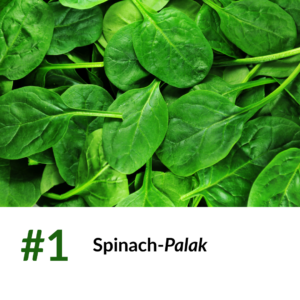
Did you know how important gut health is for our overall well-being? If not, let me tell you that it plays a very important role in performing vital bodily functions.
Why is Gut Health Important?
The gut is responsible for breaking down the food we eat and absorbing nutrients from it. It supports energy production, waste elimination, skin health, etc. Our gut is known as the “second brain”. Gut bacteria can send messages to the brain and even release hormones as well. This signifies that gut health has a direct impact on our mental health. Moreover, 70% of the immune system is housed in the gut! The gut wall acts as a barrier preventing viruses and fungi from entering our blood stream. Poor gut health can translate to low immunity, high risk for chronic diseases, depression, etc.
Gut Microbiome
Our body has a variety of bacteria, most of which are good for us. The gut microbiome is where our good gut bacteria resides in. This bacteria, not only help us digest the food we eat but also contributes to our overall mental and physical health. Moreover, the good gut bacteria keeps the bad bacteria in check. They multiply frequently leaving little space for the bad bacteria to grow. Having a healthy balance of bacteria is what is called equilibrium. Everyone’s gut microbiome is unique. So, the kind of food that is beneficial to one can be harmful to another. The most common intolerances are seen for gluten and lactose.
So, what should we do to ensure good gut health?
An easy and effective way to improve your gut health is to include fresh leafy vegetables into your daily diet. Research shows that eating green leafy vegetables contribute good bacteria to your gut. The increase of good bacteria in your gut, limits bad bacteria from reproducing and settling in your digestive tract. Moreover, leafy greens contain fibre, which is also very essential for good gut health. Here is a list of Indian green leafy vegetables that you can include in your daily diet.
7 Indian Green Leafy Vegetables
1. Spinach – Palak
Spinach is considered a superfood because of its richness of nutrients and lack of calories. It is packed with vitamin A, K, C and D, dietary fibre, iron, potassium, calcium and magnesium. Spinach can help stabilise glucose levels in your blood and enhances your bone health. It also helps in controlling diabetes as it has a low Glycemic Index. Hence, it is an ideal ingredient in recipes for diabetic patients.

2. Mustard Leaves – Sarso

Research shows that mustard leaves have more Vitamin A than Spinach and more Vitamin C that oranges!! Including mustard leaves to your daily diet can result in good lung, heart and kidney health. These also contain a range of phytonutrients that protect our cells from stress and damage.
3. Amaranth – Cheera, Chaulai
Amaranth leaves come in different colours ranging from green, red, purple to gold. They are rich in Vitamins A, B, C, K, iron, and potassium. According to Ayurveda, drinking the juice extracted from amaranth leaves can help in curing diarrhoea and haemorrhage conditions. Regular consumption of Amaranth leaves can also help in easing digestion, excessive menstruation and weight management.

4. Fenugreek- Methi, Uluva

Methi leaves are rich in Vitamin A, K and C, Minerals, and B-Complex minerals like Folate, Riboflavin and Pyridoxine. According to Ayurveda, Methi leaves are also rich in diosgenin that stimulates milk production in lactating mothers and it also helps in inducing labour. The folate in Methi leaves is important for multiplication of RBCs and WBCs in our blood. This makes it a very good food for iron deficient people. It is also recommended for adolescent girls to pregnant mothers.
5. Curry Leaves – Kaddi Patta, Kariveppilai
Curry leaves have a wide range of medicinal and therapeutic benefits. Packed with essential vitamins, carbohydrates, fibre and volatile oils, curry leaves play a vital role in controlling treating heart problems, preventing infections and also providing beautiful hair and skin. The extract from Curry leaves is commonly used to treat diabetes. It also acts like a detox and cleanses your body from within when eaten raw or in the form of a juice.

6. Moringa/Drumstick Leaves

According to research, Moringa leaves have 7 times more Vitamin C then oranges and 15 times more potassium than bananas. It is also rich in calcium, iron and amino acids that are essential to build muscles and heal your body. Moringa leaves are proven to be able to combat arsenic toxicity. Moreover, they support brain health and act as neuro-enhancers.
7. Turmeric Leaves – Haldi
Turmeric leaves contain curcumin that triggers bile production which is essential for digestion. Curcumin also has strong anti-inflammatory properties, hence, that makes turmeric leaves highly beneficial for patients of osteoarthritis and rheumatoid arthritis.

Make sure to include these or any other leafy vegetables of your choice to develop and enhance your gut health. It’s very important to ensure that your green leafy veggies are fresh and nutritous. What better way to ensure this than growing it yourself! Most leafy vegetables are easy to grow and don’t require much maintenance.If you live in a city and don’t have much space to grow vegetables, check out Vertigrove-hydro Starter Kit to grow your favourite herbs and vegetables.